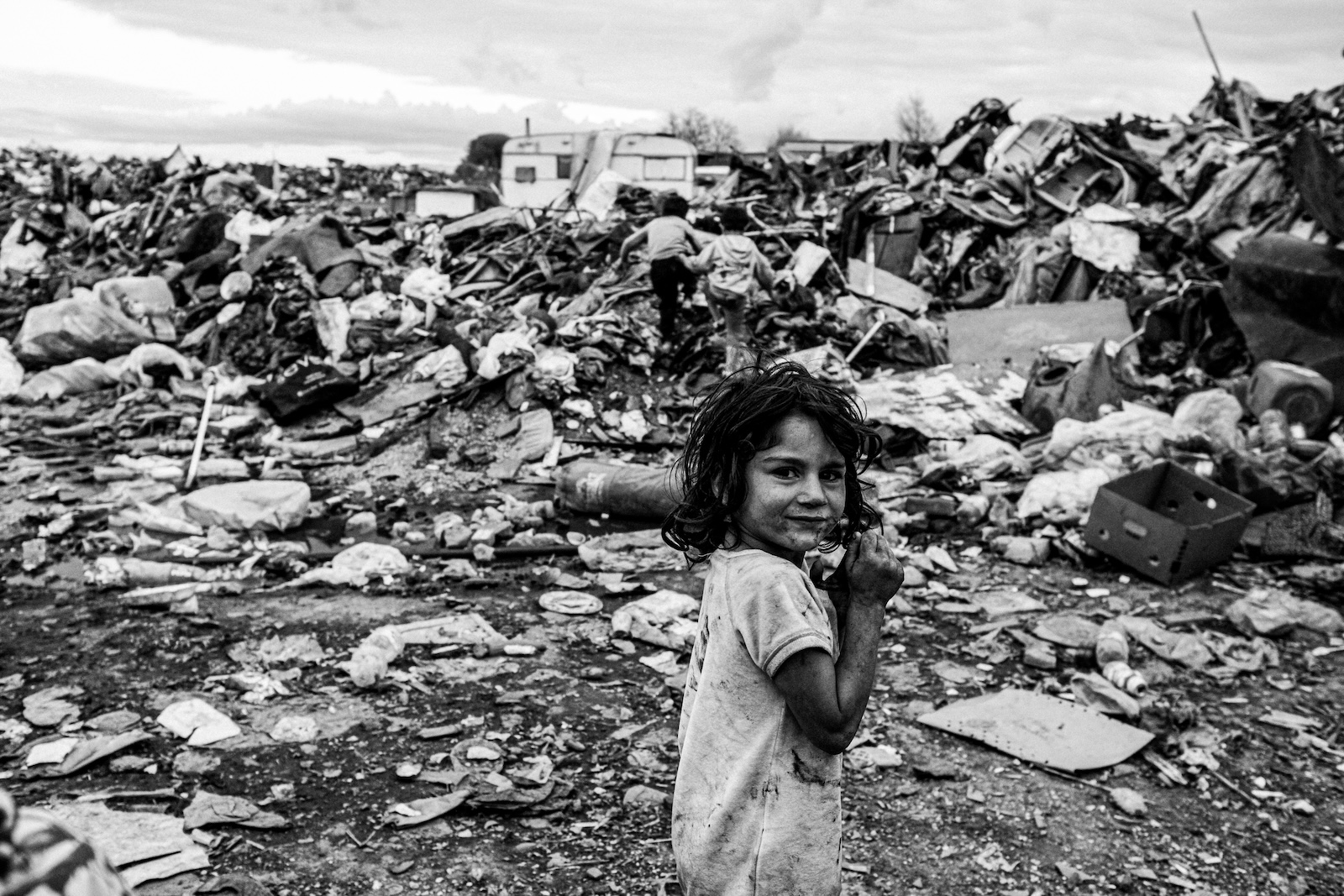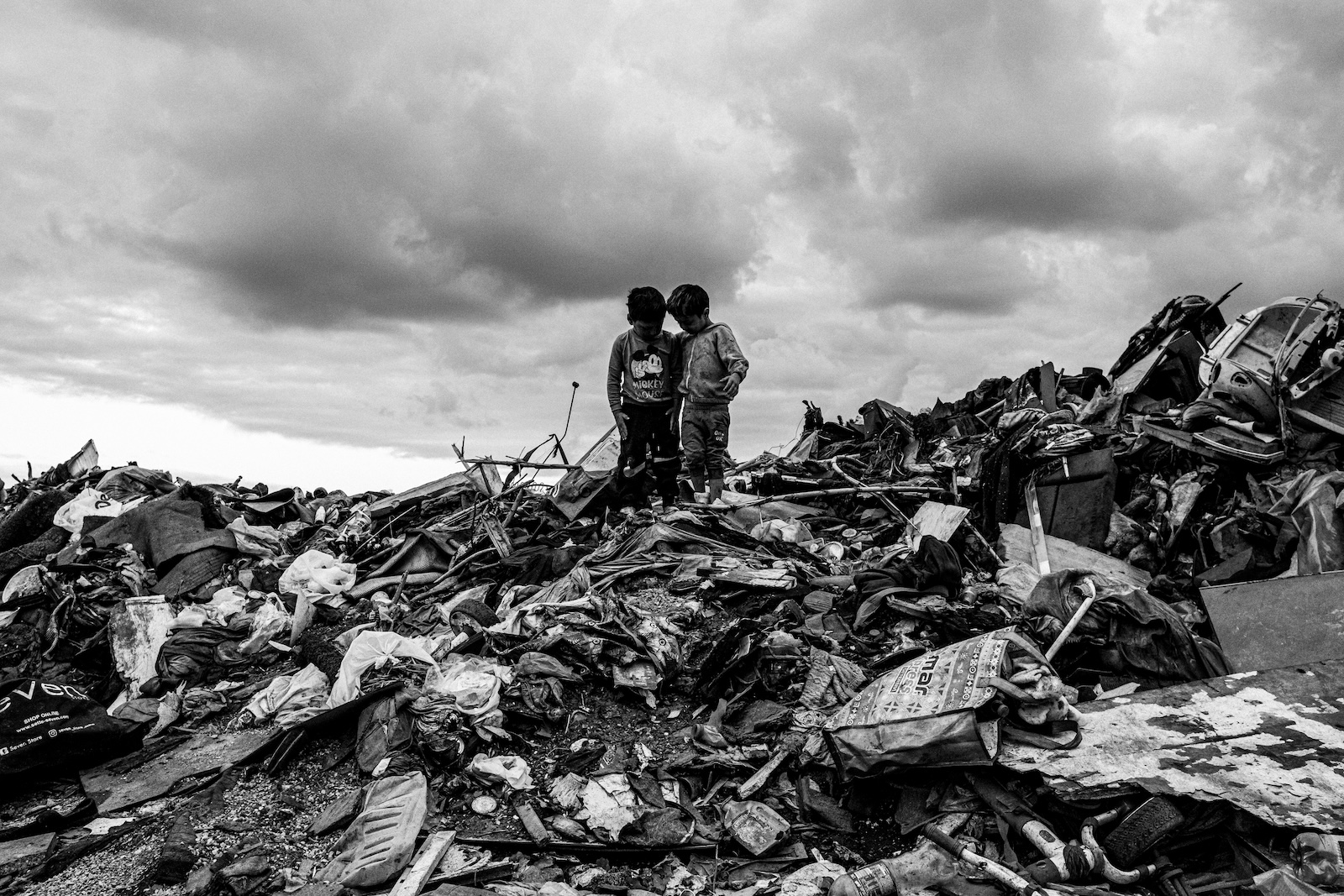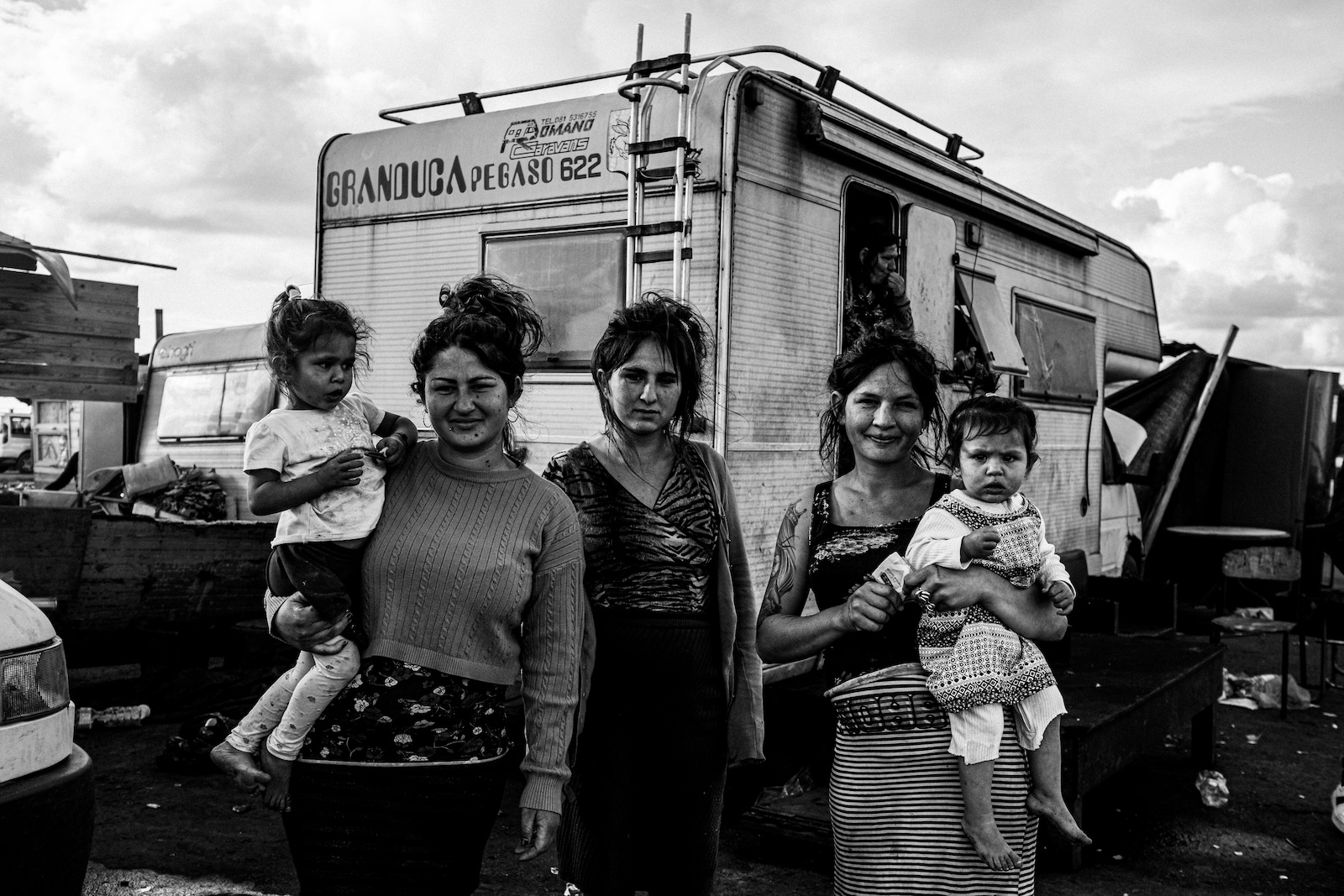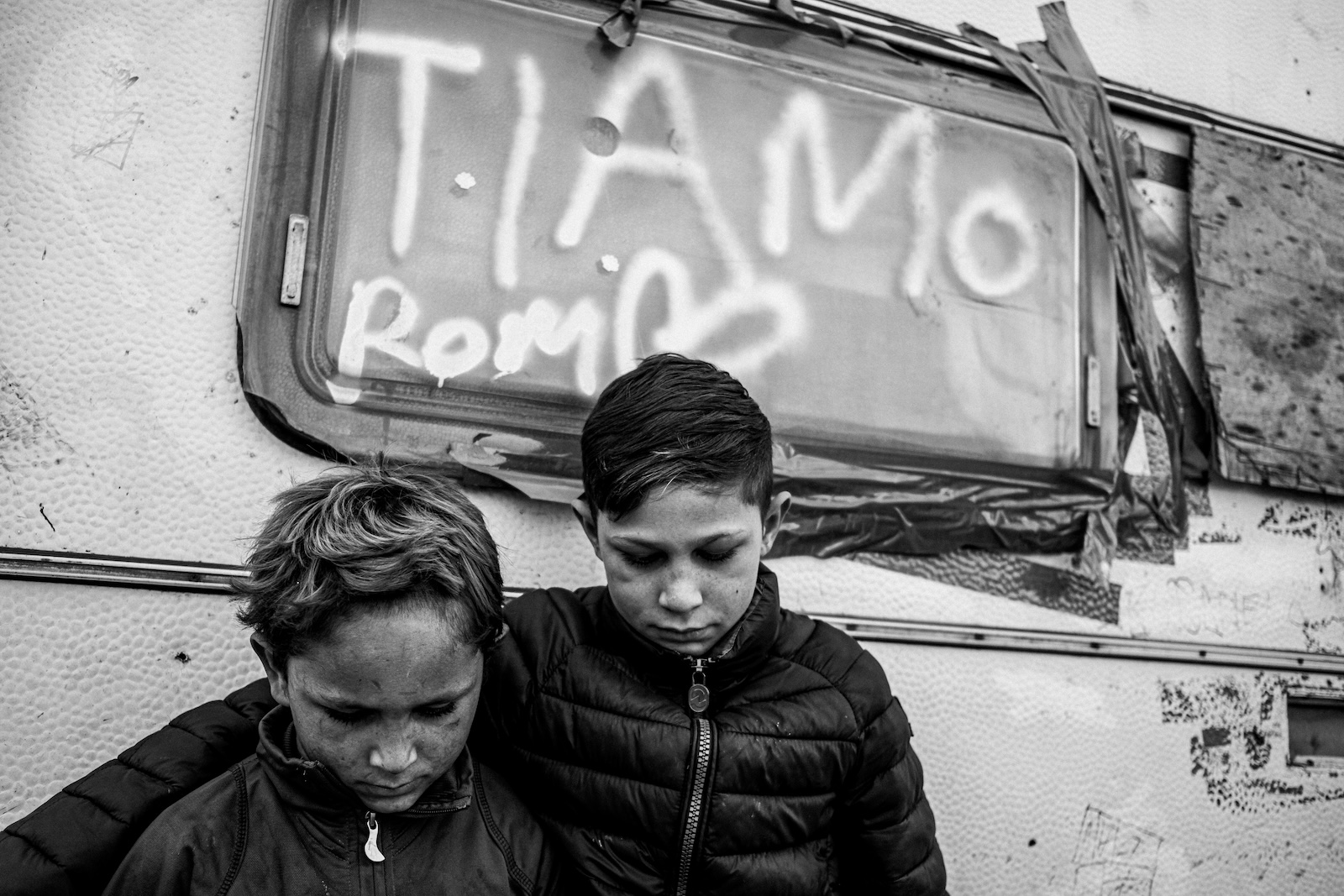Rome is the story of a lost society, where the absence of human rights and miserable living conditions annihilate all forms of dignity. A dignity that is thrown and lost among the dumps and heaps of rubbish. The Roma camp in Giugliano, Campania, is near a motorway, far from the built-up area. The people in the camp have been nomads for about 30 years, when a few families from Bosnia arrived here after the war, deciding to settle on private land in search of refuge and peace. To date, those few families have grown to about 80. The camp is estimated to house at least 500 people, more than half of whom are children. While an eviction order is scheduled for the end of April, the 21 Luglio association is fighting to give them hope.


In the Roma camp in Giugliano, the invisibility and dehumanisation of individuals are real and concrete. People live in makeshift houses built of rotten wood and sheet metal without services. There is a lack of electricity, running water and a proper sewage system. The fountain outside the camp, along the road, is the only water source, but it is not drinkable. Gas cylinders and wood stoves are shared within the households. Children play among the rubbish and dead rats, their faces are dusty and marked with sadness. They tell us that they do not go to school because they have no clean clothes, no notebooks in which they can write, and no colours to draw. They play together, running among the flowering trees in the field that separates them from the asphalt. In January 2024, a nine-month-old girl, Michelle, died in a fire caused by faulty electrical wiring. Another six-year-old girl is sick with cancer. The women, mostly pregnant, cook for the family with what little they have, while breathing in the toxic substances and waste around them. The town is far away, making it hard to move around and scrape together food, clothes, and other materials to build the shacks.
All this takes place with the indifference of the municipal administration and social services, which perpetuate the social alienation and marginalisation of the community, which receives no aid of any kind, including health care, which, given the miserable living conditions, should be an absolute priority. The Roma community is thus deprived of the basic services that a state under the rule of law should guarantee. The continued denial of fundamental human rights means that men, women and children simply do not exist.

The Roma Camp in Giugliano is the archetype of a political and social system dominated by contradictory principles that elude any genuine inclusion and integration. Maintaining the invisibility of these individuals, materially located and placed on the margins of society, is the irreversible condemnation of a system of protection of guaranteed rights, explicitly aimed at denying citizens the right to live in humane conditions.
The ineffectiveness of integration plans, the absence of adequate housing policies and the lack of interventions to ensure essential services – such as drinking water, electricity and healthcare – perpetuate structural discrimination and segregation. Abandonment and indifference, fuelled by historical prejudices and toxic narratives, continue to dehumanise entire communities. The childhood denied to children, the suffering of mothers and the despair of men become the burden of resilience of a people who cry out and demand, in silence like so many others, the right to exist. Integration, now more than ever, given the global geopolitical context, is the only possible path to peace. The naturalisation of the real integration of communities, ethnicities and cultures experiencing territorial diasporas and political oppression is the only thing that will give understanding of the world and the future that awaits us. One day, those wandering peoples may be us again.


